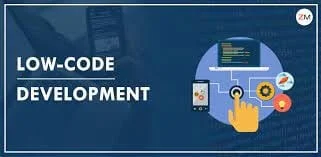In today’s digital age, banks are looking for ways to innovate and provide better customer experiences. One way they are doing this is by adopting low-code app development, which allows them to build custom applications quickly and efficiently.
Low-code app development platforms enable banks to create applications with minimal coding knowledge required. This means that banks can build apps faster and more cost-effectively than they could with traditional coding approaches. Additionally, low-code app development allows banks to iterate on their applications more quickly and respond to changing customer needs.
One of the key benefits of low-code app development for banks is the ability to create custom applications that address specific business needs. For example, banks can build applications that streamline internal processes or enhance customer experiences. This can lead to increased efficiency, reduced costs, and higher customer satisfaction.
Another benefit of low-code app development is that it allows banks to integrate with other systems and applications more easily. Many low-code platforms include built-in integration tools and connectors that make it easy to connect to other systems and exchange data. This can be particularly useful for banks that have complex legacy systems that are difficult to integrate with.
In addition to these benefits, low-code app development also enables banks to respond more quickly to changing regulatory requirements. As regulations change, banks can use low-code platforms to quickly update their applications and ensure compliance.
Overall, low-code app development is a powerful tool that can help banks innovate, improve customer experiences, and stay ahead of the competition. By adopting low-code platforms, banks can build custom applications quickly and efficiently, respond to changing customer needs, and ensure compliance with regulatory requirements.


